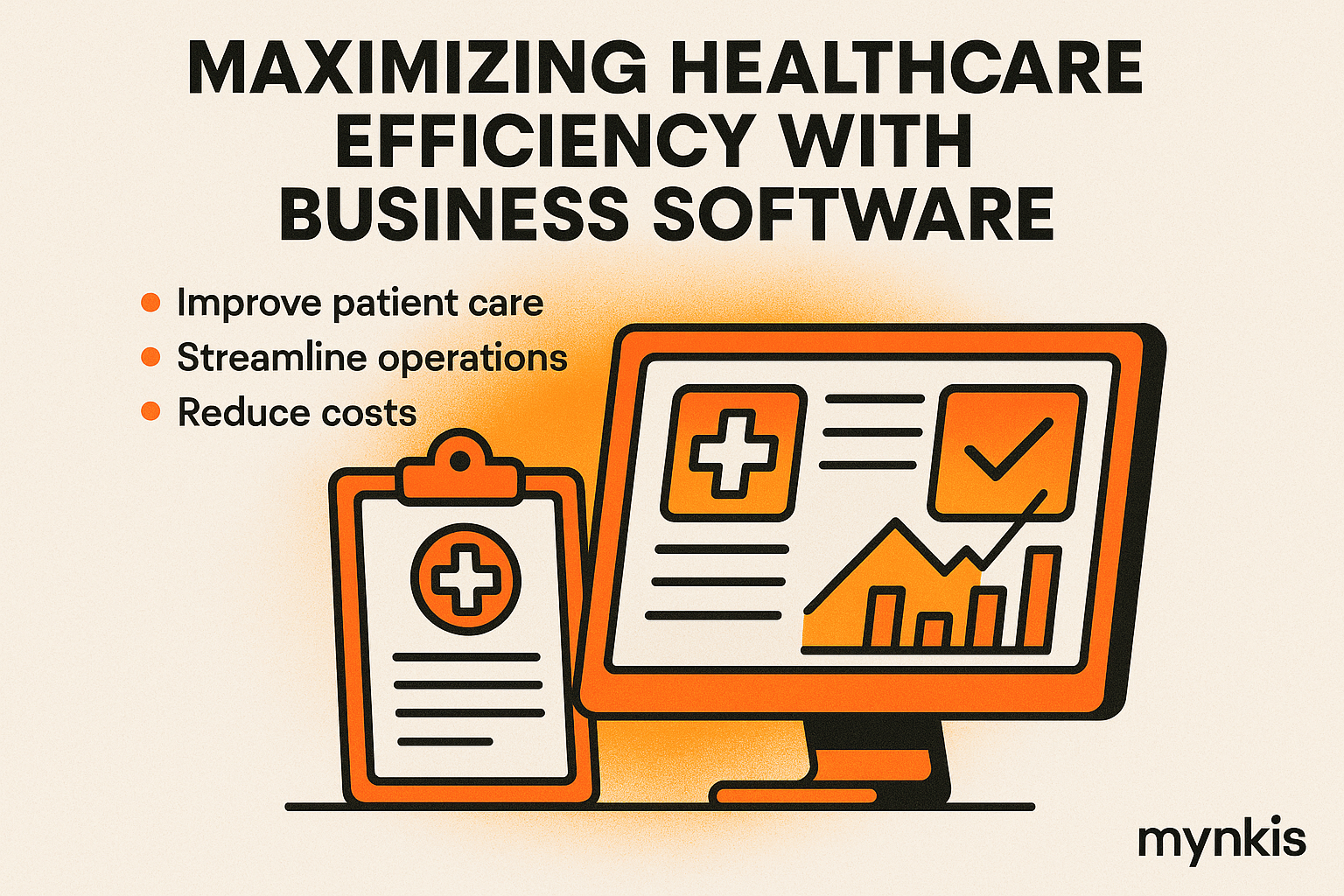Schedule a Demo
Healthcare operations, particularly in clinics and hospitals, are under constant pressure to manage patient care efficiently. In my work with operations managers, I've seen how critical it is to streamline processes to improve patient outcomes and operational effectiveness. Introducing robust business software solutions can transform healthcare management by automating routine tasks, enhancing patient communication, and ensuring data compliance.
Custom software development plays a pivotal role in addressing the unique needs of healthcare providers. Compliance with regulations like HIPAA is non-negotiable; software tailored to these requirements not only meets but exceeds these standards. For example, by integrating custom patient portals, healthcare organizations can offer a secure environment where patients can access their medical records, schedule appointments, and communicate directly with providers. This level of personalization enhances both security and patient satisfaction, allowing clinics to focus more on care rather than administrative overhead.
Effective data management is at the heart of modern healthcare efficiency. Enterprise web solutions facilitate this by providing robust platforms for storing, analyzing, and accessing patient data. I've observed that when healthcare facilities integrate these systems, they see a significant reduction in administrative errors and time spent on data entry. Streamlined data management also empowers physicians with quick access to patient histories, which is crucial for making informed clinical decisions.
Automation is a game-changer in the healthcare sector. By automating routine tasks such as appointment scheduling, billing, and patient follow-ups, healthcare providers can dedicate more time to direct patient care. In my experience, facilities that implement automated systems experience a notable increase in staff productivity and a decrease in burnout—a win-win for both staff and patients.
Patient experience is a critical metric for healthcare success. Technology plays a significant role in this arena, from virtual consultations to patient portals that allow for self-service. For instance, implementing a custom software solution that enables patients to manage their health online can significantly improve their satisfaction and engagement with their healthcare providers. This approach also frees up clinic staff from answering routine queries, allowing them to focus on higher-value tasks.
Innovations in healthcare software are constantly evolving. From AI-driven diagnostic tools to blockchain for secure record-keeping, the landscape is ripe with potential. According to a report by IBM, AI can improve the efficiency of healthcare processes by up to 30%. Integrating such advanced technologies can not only improve operational efficiency but also position healthcare providers as leaders in patient care delivery.
Healthcare organizations grow and their needs evolve, making scalability and flexibility essential features of business software solutions. A scalable software system allows clinics to add new functionalities as they grow, without disrupting existing services. Flexibility ensures that software can adapt to changing regulatory requirements or new patient service offerings, thus future-proofing the healthcare provider’s technological investments.
To illustrate the impact of business software solutions on healthcare efficiency, consider the case of a mid-sized hospital that implemented an integrated patient management system. Prior to adopting the new software, the hospital struggled with lengthy patient wait times and inefficient record-keeping. Post-implementation, wait times were reduced by 40%, and staff productivity increased significantly, showcasing the real-world benefits of such technological advancements.
Investing in business software solutions may seem daunting, but the return on investment can be substantial. Savings from reduced staffing needs, lower error rates, and improved patient outcomes contribute to significant financial benefits. In discussions with CFOs, I've learned that analyzing the potential ROI beforehand can guide decision-makers in choosing the right systems for their needs.
Adopting new technology requires not only financial investment but also investment in staff training and change management. I've found that clinics that dedicate resources to comprehensive training see higher adoption rates and fewer issues with new systems. Addressing resistance to change through effective communication and clear demonstration of benefits is crucial for a smooth transition.
Seamless integration with existing systems is another critical aspect of implementing business software solutions in healthcare. Ensuring that new software can communicate effectively with legacy systems minimizes disruption and maximizes efficiency. An integrated approach allows for a more holistic view of patient data, improving both care delivery and operational processes.
The future of healthcare software looks bright with trends like telemedicine and personalized medicine on the rise. Telemedicine, supported by robust software solutions, can bridge geographical gaps and make healthcare accessible to remote areas. Personalized medicine, leveraging big data and AI, can tailor treatment plans to individual patients, significantly enhancing care delivery. These trends underscore the importance of forward-thinking in software solutions to stay ahead in the healthcare industry.
While embracing new technologies, healthcare providers must remain vigilant about data security. In my experience, implementing stringent security measures within software solutions is crucial to protect sensitive patient information. Balancing innovation with robust security protocols ensures that healthcare organizations can leverage new technologies safely and responsibly.
Successful implementation of business software solutions often involves a collaborative approach between healthcare providers and developers. Engaging stakeholders from the onset ensures that the software aligns with operational needs and clinical workflows. This collaboration fosters solutions that are not only effective but also well-received by the users on the front lines.
Efficiency in healthcare is not just about cutting costs or speeding up processes; it's about enhancing patient care and ensuring a sustainable, innovative future for healthcare delivery. By leveraging custom software development, enterprise web solutions, and a commitment to continuous improvement, healthcare organizations can meet today's challenges and anticipate tomorrow's opportunities.
